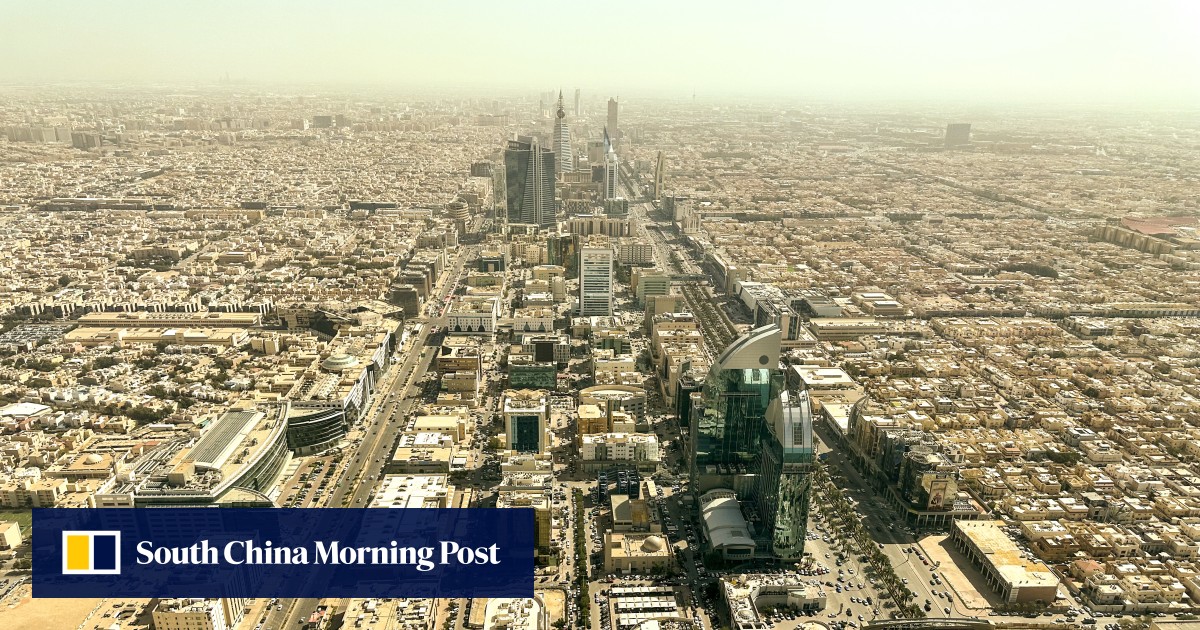Hong Kong investors to gain access to Aramco and other Saudi mega cap stocks via soon-to-be launched ETF
Hong Kong investors will get a chance to tap into Saudi Arabia’s economy through a newly launched exchange-traded fund (ETF) which could buy shares in corporations like Aramco, the world’s third-most valuable company, and other giants listed on the world’s seventh-largest stock market in Riyadh.
The ETF, to be managed by CSOP Asset Management, a Hong Kong venture owned by China Southern Asset Management, is being launched at a time when the Middle East nation is looking to finance diversification of its oil-dependant economy.
The fund will track the 50 most valuable companies in Saudi Arabia’s stock exchange operating in sectors ranging from financials to energy and raw materials and will start trading on Hong Kong’s bourse soon, sources familiar with the situation said.
“The Financial Secretary and his team have been working very hard to make this happen,” they said.
The sale was confirmed by a CSOP official who spoke on condition of anonymity, because the ETF launch was yet to be made public.
A general view of Saudi Aramco’s Abqaiq oil processing plant Photo: AFP
The launch of the ETF is a milestone development, as Asian investors would have greater access to Saudi Arabia’s economic growth and its capital markets while promoting two-way capital flow between the two regions, according to the city’s financial secretary Paul Chan Mo-po. He said this will also be conducive to sovereign funds and investors in Saudi Arabia and the Middle East to expand their investments using Hong Kong as a base.
Chan added that Hong Kong would serve as a broad platform linking Saudi Arabia with investors in Asia and globally, with rising investment interest in the Gulf nation.
Saudi Aramco signs deals with Chinese partners to build refinery
Saudi Aramco signs deals with Chinese partners to build refinery
Financial analysts said the ETF was another initiative that would further foster mutual access between Hong Kong and Saudi Arabia, after the acceptance of the Saudi Exchange as a recognised stock exchange by the HKEX recently.
“We believe that this ties in with the development of the real economy, and would be a win-win for the development of both capital markets as well as for the respective investors,” said Sally Wong, CEO of Hong Kong Investment Funds Association.
“The launch of the ETF is an example of how we can take this forward – Hong Kong investors will be able to leverage on the investment opportunities in the Middle East in a cost-effective manner. And the Middle East capital markets can tap into a larger investor base.”
The ETF product may offer a new investment venue for the large pool of global funds in Hong Kong, whose interest in Chinese and local stocks has waned this year amid the nation’s patchy economic recovery, analysts said. Saudi Arabia’s benchmark stock index Tadawul All Share Index has been flat this year, outperforming both the Hang Seng Index and China’s CSI 300 Index that have dropped over 8 per cent. Overseas investors dumped 80.1 billion yuan (US$10.9 billion) of yuan-traded stocks through the exchange link with Hong Kong in the third quarter.
“This ETF is a good start to attract local investors to the Middle East markets,” said Tom Chan Pak-lam, permanent honourable president of the Institute of Securities Dealers, an industry body of stockbrokers in Hong Kong.
More investors have set their eyes on Saudi Arabia, the world’s biggest oil exporter, after the nation unveiled its so-called “Vision 2030” plan. Under the blueprint, the nation plans to wean off its reliance on oil and attract investments in emerging industries from healthcare to infrastructure and tourism. Ties between Hong Kong and Saudi Arabia have strengthened after China’s President Xi Jinping visited the Middle-East nation in December to seal a raft of major deals in technology and energy industries.
With vast oil dollars, Saudi could hold key to South Korea’s arms export dreams
With vast oil dollars, Saudi could hold key to South Korea’s arms export dreams
Beijing views Saudi Arabia as an important ally in Xi’s Belt and Road Initiative of infrastructure investments and trades. Earlier, Riyadh agreed to settle trade payments in the Chinese currency yuan, a move that will promote its internalisation and pose a challenge to the US dollar’s position as the world’s reserve currency.
The Gulf nation is also more engaged in fostering business partnerships with the mainland’s financial authority. In September, Saudi Tadawul Group, which owns the Saudi Exchange, signed a memorandum of understanding with the Shanghai Stock Exchange to collaborate in areas of cross-listings, financial technology, environmental, social and governance and data exchange.
Saudi Arabia is the world’s seventh-largest stock market with total capitalisations of around US$3 trillion, according to Bloomberg data. A total of 230 companies trade on the Saudi Exchange’s main market as of the end of September, according to Saudi Tadawul.
The exchange’s biggest stock is Saudi Aramco, ranked as the third-most valuable company globally, behind Microsoft and Apple, with a market capitalisation of US$2.1 trillion.





